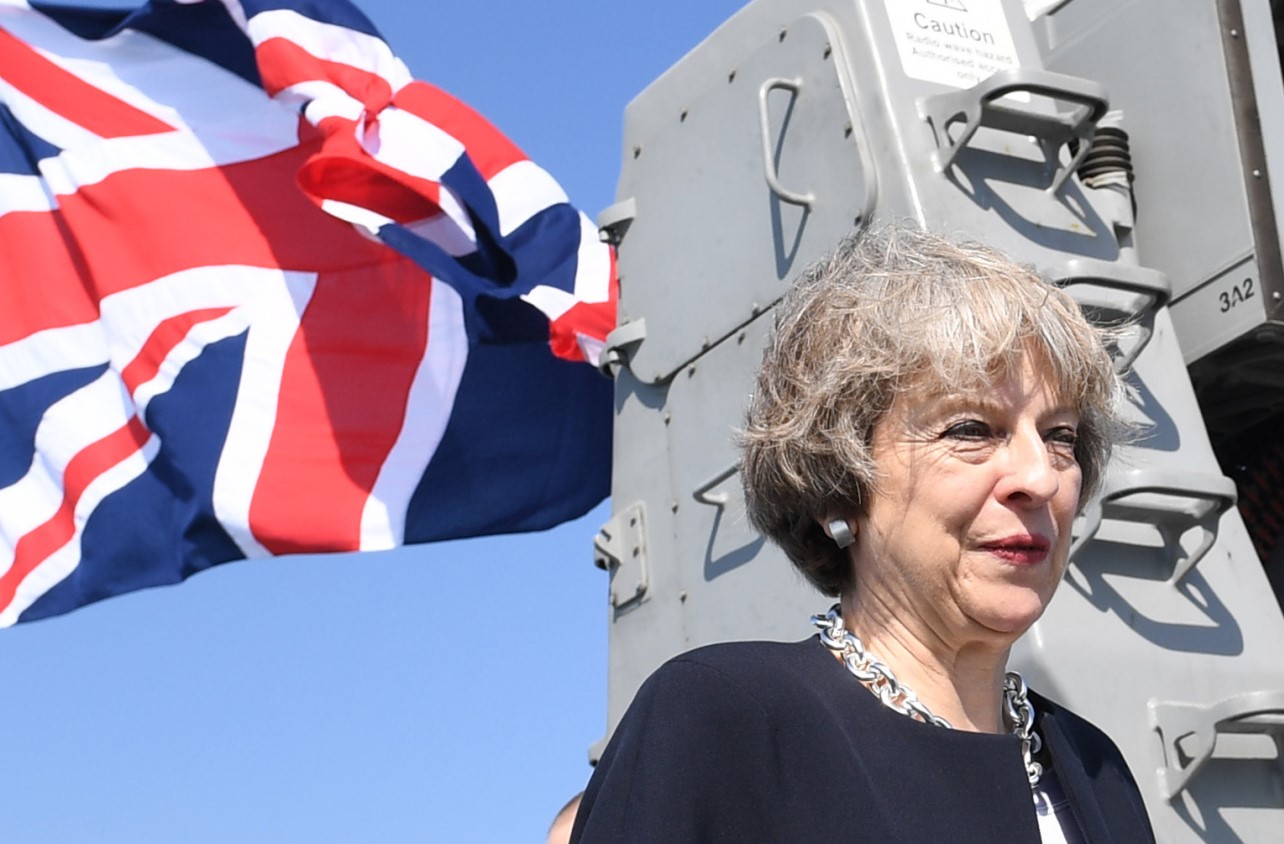Reuters photo
By
Tom Arms
She’s done it. Mrs May has gone and linked Britain’s nuclear deterrent to Brexit trade negotiations. I can honestly stick out my chest, jut out my chin and proclaim: “I told you so. And I told you exclusively.”
Alright, Mrs. May didn’t actually use the n-word in her letter to the European Commission which triggered Article 50 of the Lisbon Treaty and the start of Brexit negotiations. But in just one document she explicitly linked economic concessions with security issues nine times.
It requires only the smallest leap of imagination to realise that the British Prime Minister was talking about more than exchanges of DNA databases with continental police.
But be warned, the consequences of this link will be dire. Messing with the balance of strategic weapons capable of incinerating the world several times over is a dangerous policy.
Mrs May knows that, but the problem is that nuclear missiles are just about the only weapon the British have in their negotiating armoury. Their backs are against the wall.
There is of course a question mark over whether or not the UK will be allowed to play the security card. German Chancellor Angela Merkel has made it crystal clear that she opposes negotiations on any future relationship until the terms of the divorce are settled. That means Britain has to cough up $60 billion, allow EU citizens to remain in Britain and accept that it will no longer be part of the European Single Market. All this before any talks on a future relationship which may or may not involve security. This is a direct contradiction of Mrs May’s tandem approach.
Assuming that Mrs May’s simultaneous approach wins the day, what are the possible repercussions? In short, tying trade to nuclear weapons is a dangerous precedent. Offering to strengthen Britain’s nuclear ties to Europe weakens the American link on which European security has been based for the past 60-plus years. And it turns Britain into a mercenary nuclear state.
It is an accepted truism that if a nuclear weapons state uses its nuclear weapons it has lost the war. The weapons are the ultimate deterrent and to be used ONLY in that capacity. Linking the nuclear umbrella to trade concessions creates an entirely new nuclear playing field.
Where does it stop? Does Britain strike a deal with Saudi Arabia and the Gulf States to protect them from Iran? The British have just reopened a permanent naval base in Bahrain. How about East Africa? The Americans lease Diego Garcia but the British still own it. London has great relations with Singapore, an excellent base for an Asian presence.
And what about other nuclear weapons states? What is to stop India, Pakistan, France, Russia, China, and the United States from using their nukes to extract trade concessions? It will cost more but the trade deals – or should I say protection money–should more than cover the costs, with a profit—adding a new and dangerous element to the problem of nuclear non-proliferation.
A stronger nuclear Britain willing to flex its muscles fits in nicely with the Trump view of the world. During his campaign The Donald shocked defence analysts by floating the idea that America cut costs and commitments by suppling nuclear weapons to allies such as Japan and Saudi Arabia.
It is now making more positive noises about NATO, but the initial threats still rankle at the back of the minds of European leaders. Beefing up the British nuclear deterrent and tying it closer to Europe would save America money. However, it would also put several more links in the defensive chain that ties the US to the protection of Europe.
The Trump Administration may favour such a change, but this is not in the interest of either side of the Atlantic. Two World Wars have proven that. In both of them America adopted a stand-off role at the start. However, the fact that their interests were clearly intertwined with the European democracies meant that Washington was eventually forced to intervene to protect its vital national interests.
If there is ever another war, the United States won’t have the luxury of years to dither. Mrs May has opened a Pandora’s box and let loose a whole new set of evils.
Tom Arms is the editor of LookAheadnews.com. Sign up now for the weekly diary of world news events.
LookAhead Radio World Report for week commencing 3 April 2017:



No Comments Yet!
You can be first to comment this post!